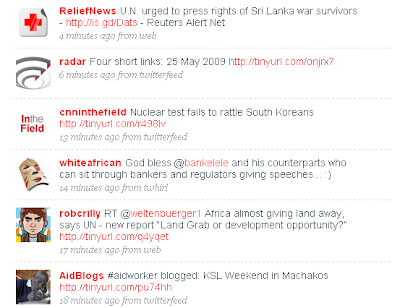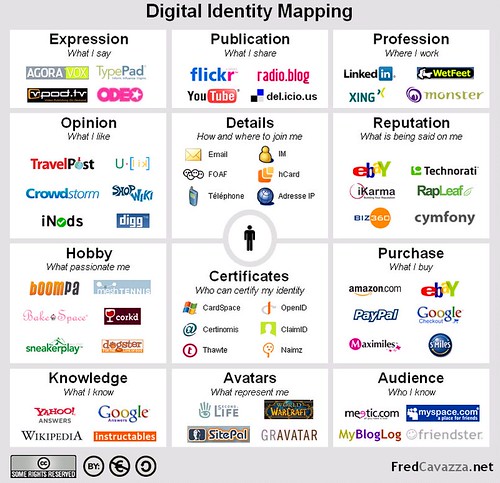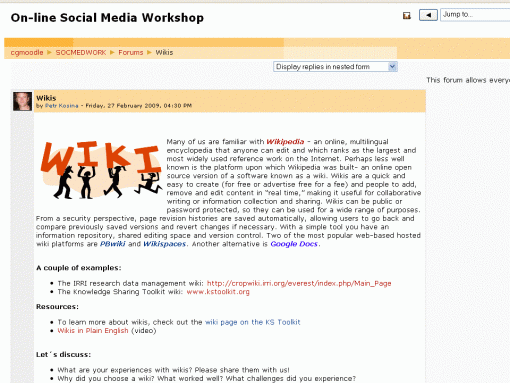 I was going to say “online community management” in the title, because I know that is a hot search term, but I just could not do it. What Simon Hearn of the Overseas Development Institute (ODI) does for his community of Outcome Mapping practitioners is facilitation, management, technology stewardship and plain old leadership. A couple of months ago Simon and I got on Skype to learn more about Simon’s community facilitation and stewardship work. Take a listen (about 27 minutes – it was too good to stop him) and hear the story of the Outcome Mapping Community, how Simon fosters participation and stewardship for and by the community.
I was going to say “online community management” in the title, because I know that is a hot search term, but I just could not do it. What Simon Hearn of the Overseas Development Institute (ODI) does for his community of Outcome Mapping practitioners is facilitation, management, technology stewardship and plain old leadership. A couple of months ago Simon and I got on Skype to learn more about Simon’s community facilitation and stewardship work. Take a listen (about 27 minutes – it was too good to stop him) and hear the story of the Outcome Mapping Community, how Simon fosters participation and stewardship for and by the community.
27 Minutes With Simon Hearn (MP3)
As background, here is Simon’s bio from the ODI site:
Simon joined RAPID in July 2007 as the Research Officer for knowledge and learning. His main responsibility is the coordination, facilitation, and development of the Outcome Mapping Learning Community – a global group of advocates, trainers, specialists and users of Outcome Mapping. He is also involved in research, capacity building and advisory work around policy influencing strategies, monitoring and learning, communities of practice, networks and the use of social media and online communications. Prior to joining ODI, he worked as a research assistant at Gamos Ltd, a consultancy specialising in information and communication for development. He has a BSc in Astrophysics and an MSc is Biomedical Engineering.
 Jon Thompson pointed me to a very interesting social media project at the World Food Programme, CipCip. Here is a brief bit about it.
Jon Thompson pointed me to a very interesting social media project at the World Food Programme, CipCip. Here is a brief bit about it. My friend and colleague, Shirley Williams, pointed me to a great resource on digital identity (DI) that she and her colleagues created for their students at Reading University in the UK. It is called “
My friend and colleague, Shirley Williams, pointed me to a great resource on digital identity (DI) that she and her colleagues created for their students at Reading University in the UK. It is called “